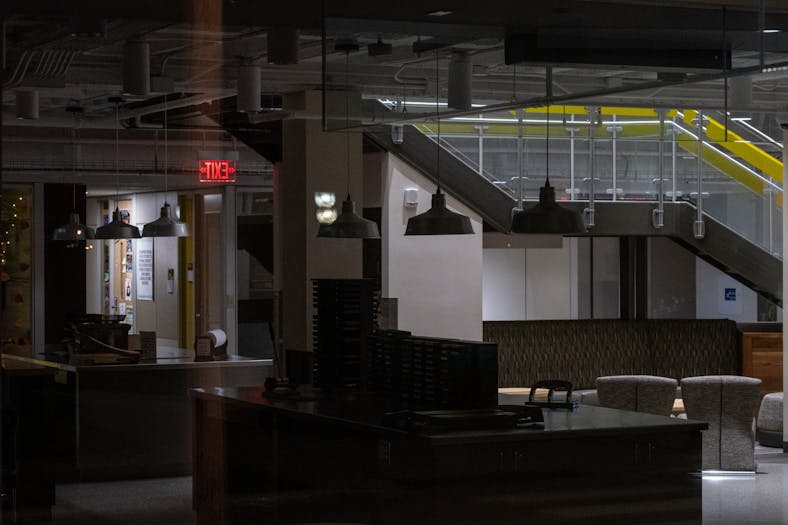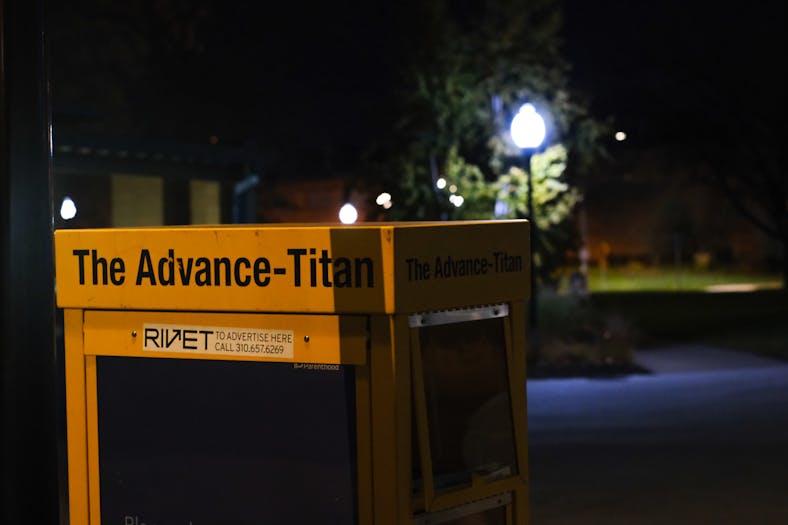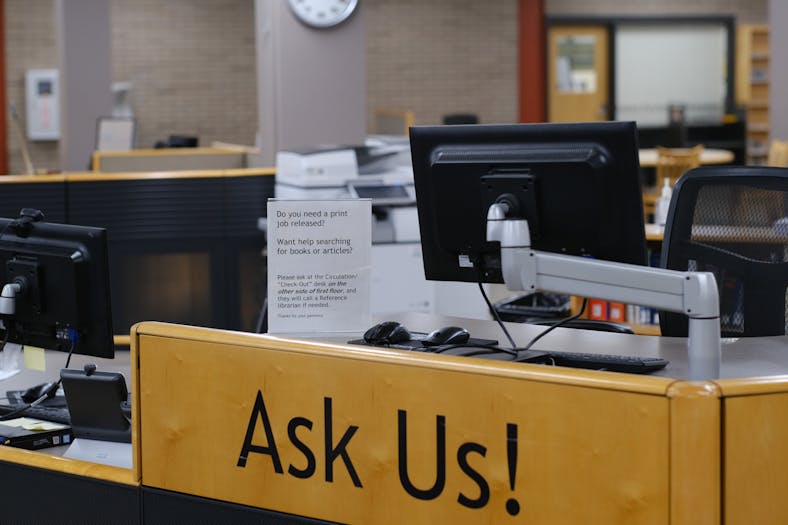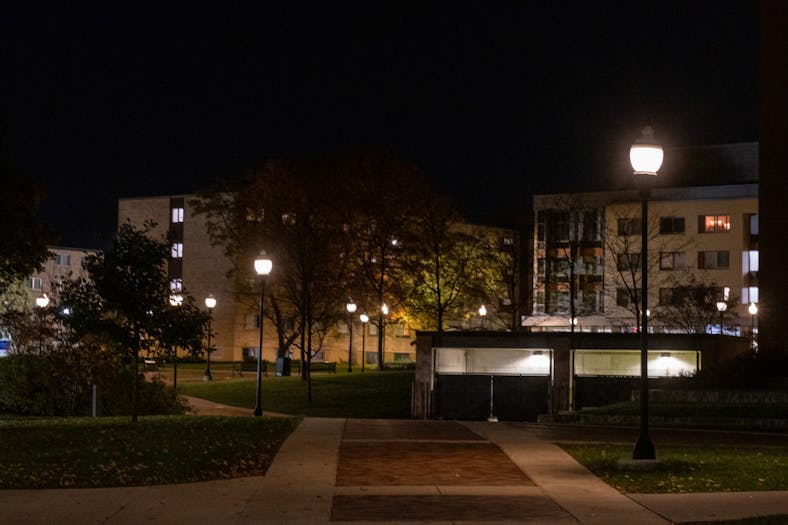Layoffs and budget cuts have taken a decidedly serious toll for some students, staff and professors at the University of Wisconsin System campuses.
“My fellow student was telling us about how sometimes her professor would tear up” in front of the class, said Chris Parish, a UW-Oshkosh junior. "[They'd say] I just need a minute because it can just be so overwhelming.’”
Reactions like these come as students and professors grapple with a $32 million UW System budget cut imposed by Republican state lawmakers in Wisconsin’s latest two-year state budget. The cuts are part of a continued showdown over diversity, equity and inclusion (DEI) curriculum, programs and positions within UW System schools, something Republican leaders oppose.
UW-Oshkosh and UW-Platteville announced sweeping layoffs in October as a result of the bruising budget cuts. With less staff, increased class sizes and larger workloads, university professors and students, many of whom criticized opaque administration, are coming to terms with their new reality.
“This is affecting everyone's lives, and we deserve to know what is happening,” Parish said. “This is going to change everything.”

Students at UW-Oshkosh study at Polk Library on campus.
How professors have been affected
Vincent Filak, a journalism professor at UW-Oshkosh, said a palpable foreboding feeling permeates the university’s halls in the wake of budget cuts.
“It's like when the doctor walks out and says you've got six months to live. You're not dead yet, but you're coming to grips with the fact you're not going to be around very much longer,” Filak told The Daily Cardinal.
Without expanded tuition to cover the costs of the budget cuts, schools are scraping the bottom of the barrel to salvage programs while cutting others. UW-Oshkosh, the first UW System school to announce the cuts, laid off 140 non-faculty employees, equivalent to one-sixth of its workforce.
To pick up the slack from these losses, UW-Oshkosh professors are required to teach an additional course this coming spring term.
Filak will be teaching an advertising course to cover for a colleague who was laid off despite having little expertise on the subject.
“If you sign up to come to a university, you expect to be taught by people who are experts in the field, not whoever you have in front of a room,” Filak said. “I'll do the best I can, and I will make sure that I meet the students’ needs at that lower level.”
Filak is also concerned some of his colleagues will struggle to overcome technological learning curves without IT staff to assist them.
Filak, who grew up in the computer age, worries primarily about older colleagues. Still, he’s nervous about tackling more complex tasks usually handled by technology staff.
“Between retirements and cuts, the dean is putting out a note saying you're going to have to learn to start doing some of these things,” Filak said. “Building classes in an online program so that students can register for them, that's terrifying if I do it wrong.”

Reeve Union, the student center at UW-Oshkosh, is decorated with paintings for homecoming week.
Universities caught between compounding fiscal threats
Michael Ford, an Oshkosh city councilman and UW-Oshkosh professor of public administration, said recent budget cuts pin universities in a financial dilemma.
“We're more reliant than we've ever been on tuition. At the same time, we [were] under a tuition freeze for about a decade,” Ford told the Cardinal.
Former Gov. Scott Walker instituted an eight-year tuition freeze on the UW System in 2013. In 2021, the Republican-led state budget-writing committee voted to end that freeze, though the UW System Board of Regents kept it enacted for another year.
That fiscal state has led, in part, to UW-Oshkosh’s current tenuous fiscal situation.
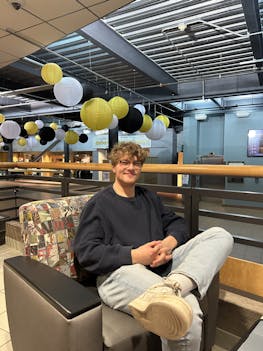
“[The layoffs] put us in this weird limbo where you're walking around, and people just got laid off, and you're still there,” Ford said.
Democrats and higher education leaders have lambasted the cuts, saying they hinder state workforce development and punish all UW System employees for administrative decisions. UW System President Jay Rothman said the cuts attempted to “compel” the UW System to eliminate DEI positions by targeting UW System employees and their families.
Services and resources are gutted
Student programs are taking a hit at UW-Oshkosh, too. The Office of International Education, which facilitates study abroad programs, was “basically wiped out,” according to Filak.
UW-Oshkosh’s language disability assistance office, Project Success, was also gutted.
“Half that office is gone,” Filak said. “We lost just a ridiculous number of people.”
Of particular concern for Parish was the LGBTQ+ Resource Center on campus, which lost key staff this fall.
“Maddie Wiles, the Associate Director of the LGBTQ+ Resource Center, apparently, she’s not going to be here anymore. What does that mean for the future of the Resource Center?” Parish asked.
Charles Cornett, a UW-Platteville chemistry professor and Faculty Senate chair, said he is nervous for student clubs at his university — especially the recent world champion robotics team, Vex U.
“One of the cuts will directly impact our functions in that arena,” Cornett said. “[I’m a] little worried about other student orgs that are more reliant on accessing those shop resources.”

People are unsure of their school’s future
Some students said they believe tuition should be lowered to match resource losses.
“When you’re getting rid of stuff like that from our institution, there’s less resources for us,” said Parish, the UW-Oshkosh junior. “Apparently, our language department is getting cut down to the point where there’s going to be one Spanish professor and one French professor, and that’s it.”
Parish further encouraged transparency from administrators and criticized what he said were vague explanations of the process university officials used to determine layoffs.
“It feels like everyone became a number,” Parish said. “I want to know the names of these people. I want to know who's getting cut. I want to know why they're getting cut.”
Cornett believes this situation allows for an examination of “higher ed and finances and the impact it's having on students and their families as well.”
Ford echoed Cornett’s mindset. He hopes the UW System and UW-Oshkosh can rebuild and encourage changes in administrative structures to “get business around the university done.”
“That's painful, because the first step has been this horrible loss of our colleagues and we're still very much in that grieving phase," Ford said. “But I'm hoping we can rebuild after.”
